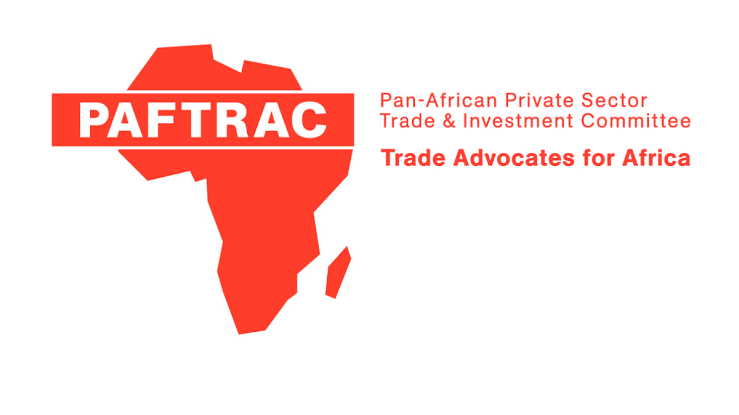Access to finance remains one of the single biggest constraints for small and medium-sized businesses on the African continent. Nevertheless, it is important to understand the exact nature of the financing challenges experienced in order to design the tools to build financing capacity in this key sector of the economy.
When discussing SME financing, we tend to focus on early-stage and start-up financing. While this is certainly an important topic in the small business ecosystem, this may not necessarily be where financing efforts should be focused.
Rather a concerted effort to improve the value proposition around trade finance may offer a higher impact solution, particularly in Africa where the trade financing gap has risen to $82 billion and is still widening. Trade Finance is the oil that greases supply chains and ensures that buyers and sellers can ultimately fulfil their obligations.
For instance, a construction company places an order for work overalls from a local supplier. The construction company might only pay on fulfilment of the contract. However, the supplier has to deal with manufacturing capacity, people and raw materials to fulfil the order. This roadblock is a common issue for small businesses who receive orders but are unable to readily access the finance to fulfil these orders – it impacts not only the organisation which has received the contract, but also the downstream suppliers.
Without finance to facilitate the transaction, the entire supply chain comes to a halt.
Trade finance becomes highly relevant here, by introducing liquidity into this transaction.
One of the segments that has been impacted the most by the exit of large global banks in frontier and emerging market economies (following the economic fall-out of the ongoing COVID-19 pandemic and the subsequent impact on the availability of trade finance) is SMEs. The reasons for this are varied but the cost of regulation in the sector has increased, the perceived credit-worthiness of SMEs and lack of credit data are issues and foreign currency availability challenges persist when it comes to trade.
Financial inclusion across Africa is yet to peak as most SMEs operate in the informal sector and are largely unbanked. Hence, their viability cannot be ascertained or assessed directly by financial institutions.
More, the hurdles that impede growth in the informal market have not been effectively tackled. For example, an average transaction that involves, for instance, customs clearance in the local ports requires tons of paper documents which slow down trade activities by forcing unnecessary supply chain bottlenecks.
These trade and finance situations form a hurdle for a larger percentage of the SMEs who require ease of doing business and the valuable financial products offered by the banks to drive their growth plans.
It is for this reason Absa is focused on powering trade finance across Africa and enhancing the role that digitisation will play in facilitating access to finance for small businesses.
Digitisation is a key enabler in democratising trade finance and the pandemic has accelerated the adoption of digital trade finance solutions by SMEs and corporates. While technology-driven solutions are becoming more and more relevant, much of the trade finance sector is still very paper-driven with manual processes slowing down the access to finance.
To digitize trade finance, the entire ecosystem needs to support and participate in re-imagining how we unlock value. This includes integrating activities between all role players including the regulators, the logistic companies, banks and other non-bank financial institutions (e.g., fintechs).
This will drive a concept that is known as “Digital Trade Ecosystems” which are secure online platforms that facilitate the exchange of data between partners in trade finance networks, and will be a catalyst for the sector.
While innovation and technological advancements are important, there are three issues that have to receive urgent attention over the coming year to leverage the positive impact digitisation could have on SME’s
The first is a focus on Interoperability of systems to facilitate coherent industry-wide solutions that can operate at scale. This will become particularly relevant in Africa with the opening up of the African Continental Free Trade Area which is expected to be a big driver of cross-border trade.
The second issue will be Standardisation. A major issue for the sector as a whole is that only parts of the Trade and Trade Finance process are subject to digital innovation, whereas the end-to-end digitalisation across the trade value chain remains fragmented. We need common language, technology and credit-scoring systems to facilitate faster access to solutions.
Thirdly, there needs to be a focus on more agility in the regulatory space. A perfect example of this is the limited acceptance of electronic documents and digital signatures on contracts by banks and other stakeholders. Millions of dollars of transactions could be freed up through the adoption of these digital tools, but there needs to be regulatory buy-in as a priority.
Digitisation must be supported by increasing foreign currency availability, and regulatory reform as it relates to the treatment of trade finance. Hence collaboration is required between the financial industry, Fintech, DFI’s and regulators. At Absa, we have seen and continue to see, an increasing demand for these digital solutions and are accelerating our efforts to be a key driver of trade finance solutions on the continent and to be an enabler of the AfCFTA Agreement which is a critical step to building a healthy SME ecosystem for Africa.
Michelle Knowles is the Head of Trade Finance, Absa
Oladapo Adeigbe is the Head of Financial Institutions Trade Sales, Absa










